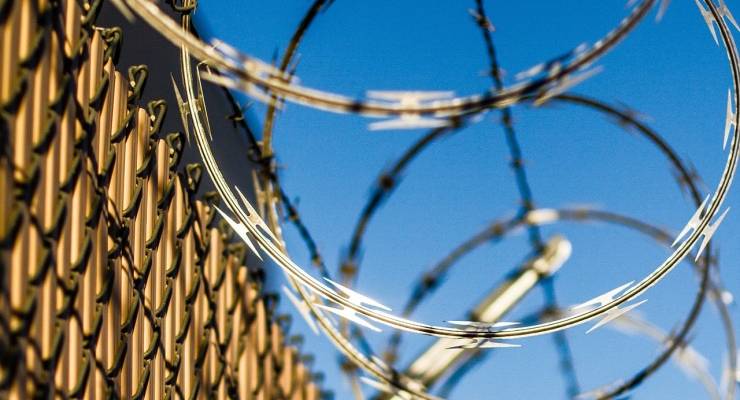
As we approach the six-year anniversary of Australia’s re-introduction of offshore processing, this shameful chapter in our history continues to command the national spotlight.
It’s not hard to see why. Even as news continues to filter out of reported increases in rates of self-harm on Manus Island following the election result, the federal government is moving forward with plans to repeal the hard-won medical transfer laws.
In contrast, the complex, challenging problems associated with Australia’s onshore immigration detention system — recently described as “more and more like prison” by the Australian Human Rights Commission — fly, for the most part, under the radar.
In an attempt to understand this better, my organisation, Jesuit Social Services, recently spoke confidentially to regular volunteer visitors to immigration detention facilities across Australia. The stories were harrowing.
“You can see that the mood can be pretty bleak,” one visitor told us. There’s been a couple of suicides this year and attempted suicides. We are very aware of the shifts in people’s emotions.
As of May 31, 2019 — the most recent data available — there were 1270 people in onshore immigration detention. The average period of time people are held in detention is 503 days. One sad story highlighted recently is that of Tamil refugee Sivaguru Navanitharasa, who has spent close to 10 years in immigration detention after fleeing Sri Lanka.
In our interviews, we heard stories about people detained in the Melbourne Immigration Transit Accommodation facility being made to wear handcuffs to be escorted for medical treatment outside the centre. The humiliation associated with this meant that some people declined to seek treatment.
“People tell me that the lack of respect wears them down. It’s very offensive for people who have no bodily autonomy,” one visitor told us.
Visitors often find themselves in the challenging position of having to connect people in detention with legal support and being the only person in the community the detainee knows to turn to on release.
One visitor told us about a man who was let out after eight years in detention. “He was put in a motel room, he was terrified. He did not go out until I arrived the next day and walked him around the block. He’d never handled Australian money.”
“You can imagine how vulnerable someone is after eight years with no autonomy and no capacity to make decisions. He was also mentally very, very unwell. The only thing that saves them is having visitors and contact with visitors to help them find somewhere that’s safe to sleep and some food until they get back on their feet.”
In a system where people feel forgotten, where they are desperate enough to forgo food, to self-harm, and worse. The important role of visitors should not be overlooked.
But visitors we spoke to were consistent in telling us that the rules and regulations applicable to visiting people in detention are often opaque, constantly changing and overly restrictive. Some of these frustrations were laid bare in a 2017 report by the Refugee Council of Australia, and it is clear that things are not improving, and in many cases are getting worse.
In Melbourne, items including blank sheets of paper, Christmas cards and a walking stick belonging to a visitor were denied. One visitor told us that they were made to individually unwrap Ferrero Rocher chocolates before taking them inside.
Another explained: “One guy requested a watch. He was given permission to get it. He got the watch — then other guards came and took it away from him”.
Even an attempt to provide an English language book to help a young man in detention advance his language skills was ultimately rebuffed. “He was not allowed to take it back to his living area as it had to go through the correct process,” recalls his visitor. “I told the young man to get the form and get it filled in. Next week he explained he couldn’t fill in the form and they wouldn’t help him. I asked for a copy of the form so I could help him [but] this was not allowed.
“After about six weeks he gave up and said ‘I don’t want to learn’.”
Clearly, these stories highlight that immigration detention should only be used as a last resort and that timeframes should be legislated and transparent to prevent its indefinite use. We also believe that the inflexible and arbitrary rules around visiting should be lifted.
Despite frustrations and the need to adhere with stringent requirements, the visitors we spoke to shared a determination to persevere. “Every time they change the system we think ‘we can’t stop now’. There’s always people [in] need.”
It’s time that our political leaders recognise the valuable role of visitors in the immigration detention system — and support, not inhibit, their work.
Julie Edwards is the CEO of Jesuit Social Services.
For more on this topic, read the work Rebekah Holt (a journalist who visits Melbourne’s Immigration Transit Accommodation) has published with Crikey.








The fascists are in charge…a majority of Australians voted for, or gave their preferences to, this putrid government. Congratulations to those drongo voters involved in this disaster!!
FYI it was the great working-class hero Robert James Lee HAWKE who introduced indefinite immigration detention. Nor has Labor opposed it since. Labor is terrified of being seen to protect the powerless.
Institutionalised governmental brutality comes around to hit us all.
Given how the positive return for the politicians and the haters on their psychological investment of brutality, viciousness, hate, and deception in asylum-seeker brutalities will have whetted their appetites, and that the boat asylum-seeker target has greatly diminished, it is to be expected that these vicious Rightist bully-boys now direct an expanded viciousness against ourselves just as much as against any “other”.
So they have – take a look at these vicious vilifications of the evil Other coupled with their obvious delight in the increasing number of deportations.
Hence, too, ex-Border Generalissimo-MP morrison’s population policy is to order a period of regional settlement for immigrants of up to five years, without any support funding, without any local infrastructure investment, to regions with no jobs, on pain of deportation for breaches.
Take a look too at the reluctance to end the vicious cuts of the 2014 Budget, tax giveaways to the richest, stagnant wages, a stressed health care system, aged care based on humiliation and starvation of the elderly for whom the hater traitor Right pretends to care, extensive anti-worker laws and practices, assistance of transnational tax evasion, the abbott/Hockey Misgovernment’s repudiation of responsibilities accepted since Federation, or the “foreign influence” laws designed to criminalise protest!